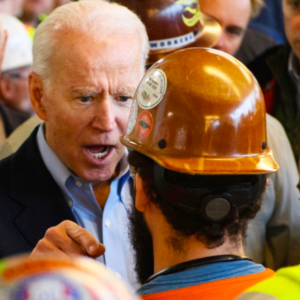Point: This Labor Day, Don’t Let Pols Take Credit for Economy

For an alternate viewpoint see “Counterpoint: Labor Faces a Partisan Divide on Most Important Issues”
Workers have much to celebrate this Labor Day. Unemployment is near its lowest level since the 1960s, and real wages are growing again. Post-pandemic inflation is finally under control, even if it’s not yet all the way back to normal.
Barring another crisis, there will be a soft landing from the pandemic downturn.
This is fantastic news, and President Biden has quickly taken credit for it under his Bidenomics umbrella. He, along with Republicans, deserves more blame than credit, however. Neither Biden nor Congress have much control over inflation, and their massive bipartisan spending binge is doing more harm than good for working families.
It helps to think of today’s primarily healthy economy as the third act of a three-act story. In the opening act, a mostly healthy economy was humming along, much like it is now.
In the second act, the pandemic shut everything down.
We are now in the third act, when things are getting back to normal.
The economy is mostly healthy now because the pre-COVID economy was healthy. As in previous downturns, there was no savings and loan scandal, no housing bubble, and no financial crisis. A strong economy closed down, then opened back up. Politicians shouldn’t take credit for that.
If anything, the re-opening was needlessly complex because Washington overreacted. An iron law of economics is that when you print a bunch of money, you will get inflation. In the first two years of the pandemic, the Federal Reserve grew its balance sheet by nearly $5 trillion, more than doubling in size. That unprecedented monetary stimulus is the leading cause of the inflation we’re still dealing with.
The Fed’s monetary overkill doesn’t let Biden or Congress off the hook. One could argue some new spending was necessary for relief payments and vaccines. But most of the trillions of dollars spent under the CARES Act, the Infrastructure Investment and Jobs Act, and the CHIPS Act had little to do with the pandemic. All this spending made the Fed’s job harder, as it more or less has to help finance the political branches’ deficit spending.
The Fed also deserves more credit than Biden for fixing inflation, though this remains a work in progress. When the Fed realized how badly it overshot the mark, it stopped creating new money. It also raised interest rates to slow down existing money’s circulation. Biden and Congress, by contrast, kept spending. The coming months will see a new farm bill and another budget battle.
Biden recently said of the Inflation Reduction Act (IRA), “I wish I hadn’t called it that because it has less to do with reducing inflation than it does to do with dealing with providing for alternatives that generate economic growth.” The IRA’s green energy subsidies, tax increases and prescription drug price controls are unlikely to grow the economy. But Biden is correct that the IRA has little to do with inflation.
Bidenomics is a slogan, not a policy program. The president’s advisers know the three-act story. They also see that the economy’s underlying good health means it will likely remain in decent shape through the 2024 election. So they decided to do some clever branding to take credit.
Labor Day is an excellent time to be thankful for a growing economy with low unemployment and rising real wages. But as bad as the pandemic and the related downturn were, politicians made it worse. And as surprising as the strong recovery has been, it should have happened sooner, and it never should have been as bad as it was.
Bidenomics isn’t the story of a brilliant recovery as much as the story of politics holding it back.


